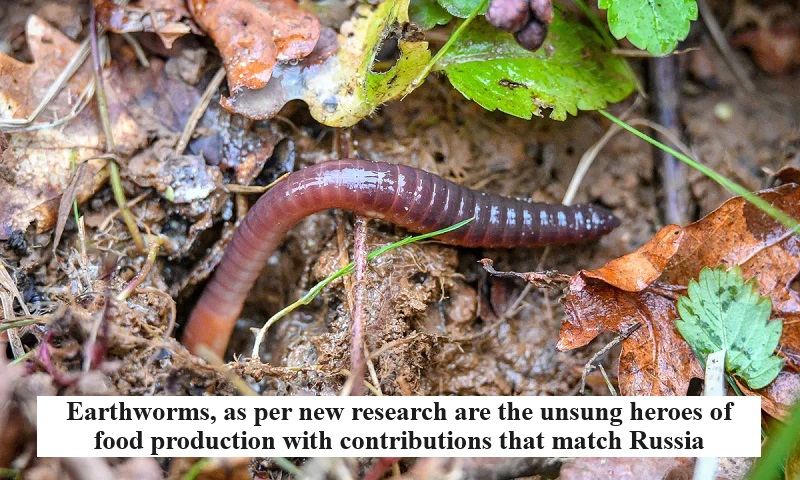
According to recent research, earthworms, often overlooked, play a critical role in food production that rivals that of entire nations. These soil-dwelling invertebrates contribute to the annual harvest of approximately 140 million tonnes of food.
For context, in 2022, Russia produced approximately 150 million tonnes of grains, and this year, it is expected to produce around 120 million tonnes. This means that if earthworms were considered a country, their contribution of 140 million tonnes would make them the fourth-largest global producer of grains.
The study, published in Nature Communications, reveals that earthworms, also known as “night crawlers,” are responsible for 6.5% of all global grain harvests, including crops like rice, maize, wheat, and barley. Additionally, they contribute to approximately 2.3% or roughly 16 million metric tonnes of legume production, including crops such as soybeans, dry beans, peas, garbanzos, lentils, alfalfa, and clover.
Their impact is most pronounced in the global south, where earthworms contribute to 10% of production in Sub-Saharan Africa and eight percent in Latin America and the Caribbean.
So, how do earthworms achieve this remarkable feat? Scientists have long recognized the positive effects of earthworms on plant growth, with naturalist Charles Darwin even documenting this phenomenon in 1881. Earthworms feed on organic materials in the soil, consuming both fresh and decaying plant matter from roots. They then mix their waste into the soil as they move, creating a moist, microbe-rich environment. Furthermore, the tunnels they create serve to introduce oxygen, aid in excess water drainage, and create space for plant roots to thrive.
While these findings are astonishing, researchers caution against introducing earthworms to regions where they are not currently present, as it can have detrimental ecological consequences for natural areas. Instead, they advocate for continued research and the promotion of agroecological management practices that enhance the long-term sustainability and resilience of agriculture.

Post Your Comments